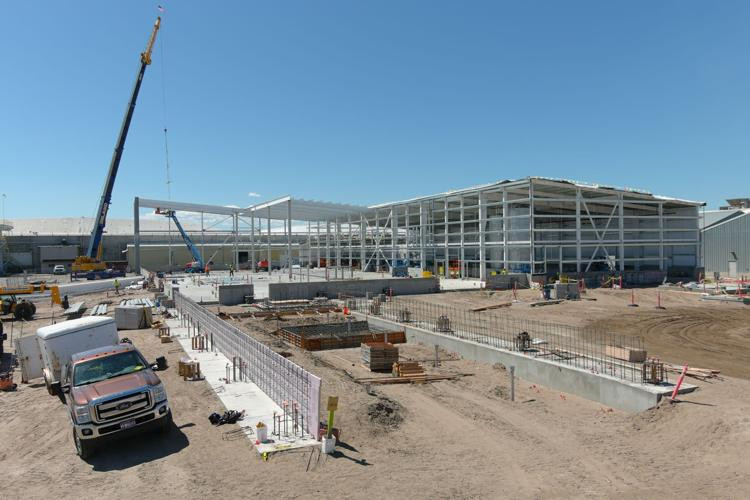For the second year running, the $32.1 billion U.S. cannabis industry will head into the Labor Day holiday weekend on the heels of a major milestone in the Biden administration’s effort to reschedule marijuana. Instead of celebration, however, anger and a minor sell-off of cannabis stocks followed Monday’s announcement that an administrative law judge won’t hear the Justice Department’s proposal to recategorize marijuana to Schedule 3 of the Controlled Substances Act until December. A year ago, the industry headed into the Labor Day holiday weekend celebrating “the biggest thing ever” to happen with cannabis reform when federal health regulators recommended that marijuana be classified as medicine. But this year, U.S. Drug Enforcement Administration chief Anne Milgram’s notice in the Federal Register of a planned Dec. 2 hearing means it’s all but certain marijuana won’t be rescheduled until 2025. As a result, plant-touching cannabis companies will have to wait a few more months for federal tax relief. That potentially upends several major multistate operators’ plans to claim business expenses the IRS says are still due under Section 280E of the Internal Revenue Code.
Investors React To DEA's Decision
Cannabis investors reacted accordingly. Shares in Green Thumb dipped more than 8.5% on the news of the Dec. 2 hearing, from $10.69 at the close of markets Monday to about $9.76 on Tuesday afternoon. Similar drops hit fellow marijuana MSOs:
Uncertainty Looms: The Political Landscape
Despite the downturn, Zuanic sees potential buying opportunities, particularly if stocks continue to be volatile. "We believe the likelihood of successful legal challenges is drastically reduced if all significant ‘affected or impacted parties' are heard during the ALJ hearing." However, Zuanic also warned of the political uncertainty that comes with the 2024 election. While a potential President Harris might complete the rescheduling process, the scenario under a Trump administration is less clear. "In the past, we would have said Trump might let the process die, but this is less obvious now," Zuanic said. The report further emphasizes that investors should prepare for a possible downturn in cannabis stock prices, particularly if the MSOS ETF drops by 15-20% or falls below $5.
A Balanced Perspective: Insights From Experts
The U.S. Drug Enforcement Administration (DEA) announced a delay on Monday in its final ruling on cannabis rescheduling until after the November presidential election. The decision, which has created uncertainty in the market, pits Vice President Kamala Harris, a cannabis reform advocate, against former President Donald Trump, whose vice-presidential pick is opposed to legalization.
What This Means For The Industry's Future
Observers stressed Tuesday that while marijuana operators might be justifiably frustrated that the cannabis plant is still federally prohibited, the rescheduling process is proceeding as the law requires – and much more quickly than some other tweaks to federal law. “It’s usually a nine-year process,” Hauser said. “Biden said it would move expeditiously, and it has.” Rather than be upset over the wait, Hauser added, the cannabis industry should be looking forward to arguing its case before a DEA that agrees on at least one point: The current status quo should change.
Looking Ahead: The Road To Rescheduling
Many advocates have expressed consternation over the Drug Enforcement Administration’s (DEA) decision to hold hearings on the matter of marijuana’s reclassification. While this response is understandable, it’s arguably an overreaction. Although some stakeholders had suggested that the Biden–Harris administration’s pledge to advance the process expeditiously would result in bureaucrats choosing to bypass hearings, such hopes were never more than wishful thinking. Prior rescheduling petition efforts took several years—not several months—to work their way through the administrative process.
The Case For Rescheduling: A Strong Argument
In fact, administrative law hearings present yet another opportunity for advocates to reinforce the case—previously and compellingly made by the Department of Health and Services—that cannabis does not meet the legal criteria of a Schedule I controlled substance. Schedule I substances, by definition, must have “no accepted medical use in the United States.” They must also possess a “high potential for abuse” and “lack accepted safety,” even if used under medical supervision. As acknowledged by the Department of Health and Human Services (HHS) and others who have weighed in on this process, cannabis meets none of these criteria.
The Future of Cannabis: A New Era?
For these reasons, advocates and other stakeholders should continue to remain optimistic that the end to marijuana’s Schedule I prohibitive status is more likely than not.


















